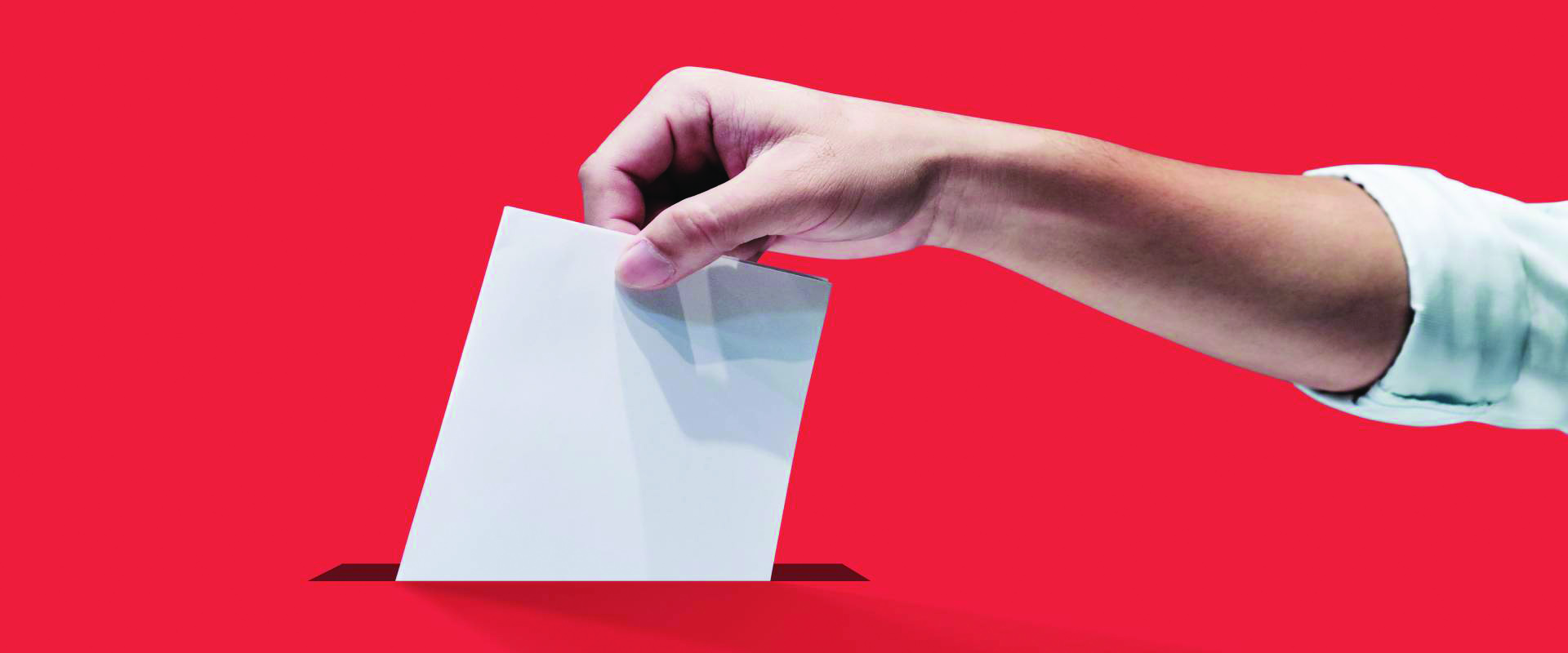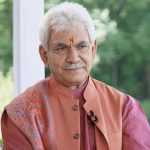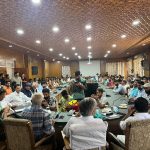Jammu, Mar 16 :Polling for Jammu and Kashmir’s five LokSabha constituencies will be held in five separate phases from April 19 to May 20, and the Assembly Elections will be held after the Parliamentary elections in the UT.
The nationwide LokSabha elections will be conducted in seven phases, commencing from April 19, with the vote counting scheduled for June 4. This election, recognised as the world’s largest democratic exercise, marks Prime Minister NarendraModi’s bid for a third consecutive term.
Meanwhile, Assembly elections in Jammu & Kashmir will be held “right after” the LokSabha polls, the Election Commission of India (ECI) said Saturday.
“We (ECI) went to Jammu and Kashmir and were asked by all the political parties there to hold the state assembly elections with the LokSabha polls. After that, we held administrative meetings wherein it was discussed that a lot of security forces would be required to conduct state assembly election with LokSabha election in J-K,” he said.
“All political parties asked the ECI to conduct an assembly election with LokSabha polls, but security agencies advised us that it would not be possible to provide security as there was a need for the deployment of huge security forces. But we are seriously thinking of conducting polls in JK after the LokSabha polls. JK will be the first state to go in the election after the LokSabha polls,” he said.
Kumar further said that the ECI will immediately conduct elections in JK within the limited time frame and it is considering “seriously” to conduct the elections after the LokSabha polls.
Meanwhile, announcing the poll schedule for the LokSabha elections at a press conference in New Delhi, Chief Election Commissioner Rajiv Kumar said that the Udhampur-KathuaLokSabha constituency will go to polls on April 19, the Jammu constituency on April 26, the Anantnag-Rajouri constituency on May 7, Srinagar on May 13, and Baramulla on May 26. Counting will be held on June 4.
After delimitation, Pulwama and Shopian districts have been added to the Srinagar LokSabha constituency while two assembly segments — Budgam and Beerwah — have been deleted.
It may be noted that J&K Reorganisation (Amendment) Act, 2023, came into force in December 2023.
Meanwhile, the data released by the Election Commission revealed that J&K has 86.9 lakh voters for the Parliamentary election, including 44 lakh men and 42 lakh women and 161 persons of the third gender. Special arrangements will be made for 67,000 voters with disabilities, and there are plans to accommodate voters above 100 years old and first-time voters.
In terms of logistics, 11,629 polling stations are being set up across the five LokSabha constituencies, with special provisions for transparency, including webcasting in 50% of polling stations and exclusive staffing of 80 stations by females. Additional facilities like ramps, wheelchairs, and basic amenities will be provided at all polling stations.
For the first time, voters above 85 years old will have the option to vote from their homes, with their ballots collected by poll staff in the presence of political party representatives. Strict instructions have been given to District Magistrates and Superintendents of Police to ensure free and fair elections, with no tolerance for intimidation or inducement.
The LokSabha elections in Jammu and Kashmir will be conducted in five phases, with each phase covering one parliamentary constituency. The schedule includes specific dates for nomination filing, withdrawal, and polling for each constituency.
Lastly, the LadakhLokSabha seat, spread over Kargil and Leh districts, will also go to polls in the fifth phase of elections.
Earlier, CEC Kumar spoke about the high-level committee examining One Nation, One Election and said that the ECI will conduct elections as per the constitutional provisions.
“There is a provision in the Constitution for conducting elections. Article 83(2) of the Constitution of India states that the House of the People will continue for five years from the date of its first meeting. There is a clause in Section 14 of the RP Act, 1951 that elections for the Parliament be must held six months before the end of the Assembly. As long as this article is there in the Constitution and there are provisions for People’s Representation and People’s Act, our job is to conduct elections according to them,” Kumar said.
The High-Level Committee on ‘One Nation One Election’ chaired by former President Ram NathKovind met President DroupadiMurmu at RashtrapatiBhavan and submitted its report on March 14.
“When asked if there was a message for the political parties ahead of polls,” CEC Kumar said, “To spread the word in the best possible way, carry out healthy and clean elections, do ethical campaigning. Best wishes to everyone. We will provide them with a level playing field, this is what we do. State governments must be behaviour-neutral because the job of the administration and election machinery is to remain the same for everyone.”
The Election Commission of India (ECI) announced the dates for LokSabha and four state Assembly elections.
Phase-wise breakdown:
Udhampur-KathuaLokSabha constituency:
Polling Date: April 19
Notification Issued: March 20
Last Date for Nomination: March 27
Last date for withdrawal of candidature: March 30
Jammu LokSabha constituency:
Polling date: April 26
Notification issued: March 28
Last date for nomination: April 4
Last date for withdrawal of candidature: April 8
Anantnag-RajouriLokSabha constituency:
Polling date: May 7
Notification issued: April 12
Last date for nomination: April 19
Last date for withdrawal of candidature: April 22
Srinagar LokSabha constituency:
Polling date: May 13
Notification issued: April 18
Last date for nomination: April 25
Last date for withdrawal of candidature: April 29
BaramullaLokSabha constituency:
Polling date: May 20
Notification issued: April 26
Last date for nomination: May 3
Last date for withdrawal of candidature: May 6
Counting for all constituencies will be held on June 4.







